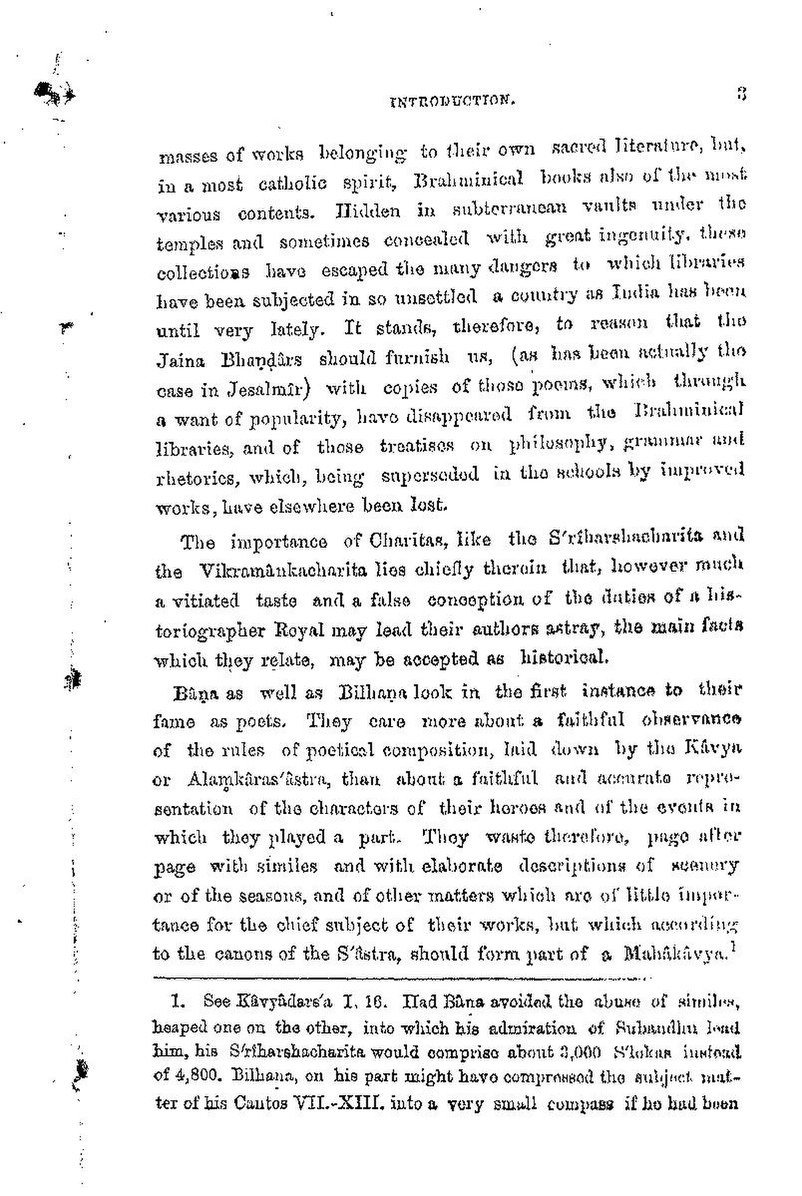INTRODUCTION.
masses of works belonging to their own sacred literature, but,
in a most catholic spirit, Brahminical books also of the most
various contents. Iidden in subterranean vanlts under the
temples and sometimes concealed with great ingenuity, these
collections have escaped the many dangers to which libraries
have been subjected in so unsettled a country as India has been
until very lately. It stands, therefore, to reason that tho
Jaina Bhandars should furnish us, (as has been actually the
case in Jesalmir) with copies of those poems, which through
a want of popularity, have disappeared from the Brahminical
libraries, and of those treatises on philosophy, grammar and
rhetorics, which, being superseded in the schools by improved
works, have elsewhere been lost.
The importance of Charitas, like the S'riharshacharita and
the Vikramankacharita lies chiefly theroin that, however much
a vitiated taste and a false conception of the duties of a his-
toriographer Royal may lead their authors astray, the main facts
which they relate, may be accepted as historical.
Bana as well as Billiana look in the first instance to their
fame as poets. They care more about a faithful observance
of the rules of poetical composition, Inid down by the Kavya
or Alamkâras'astra, than about a faithful and accurato repro-
sentation of the characters of their heroes and of the events in
which they played a part. They waste therefore, pago after
page with similes and with elaborate descriptions of scenery
or of the seasons, and of other matters which are of little impor-
tance for the chief subject of their works, but which according
to the canons of the S'tstra, should form part of a Mahâkâvya."
1. See Kavyadars'a I. 16. IIad Bana avoided the abuse of similes,
heaped one on the other, into which his admiration of Subandhu Ioad
him, his Sriharshacharita would comprise about 3,000 Slokas iusford
of 4,800. Bilhana, on his part might have compressed the subject mat-
ter of his Cantos VII.-XIII. into a very small compass if he had been
पृष्ठम्:विक्रमाङ्कदेवचरितम् - बिल्हण.pdf/७
एतत् पृष्ठम् अपरिष्कृतम् अस्ति

